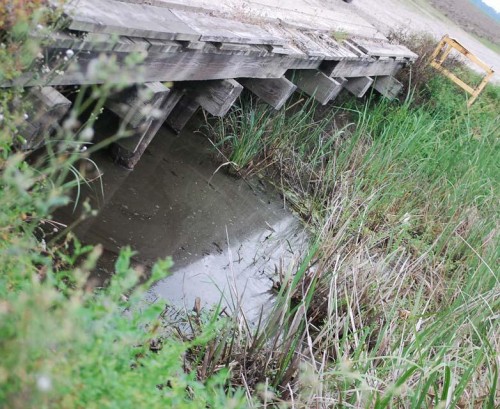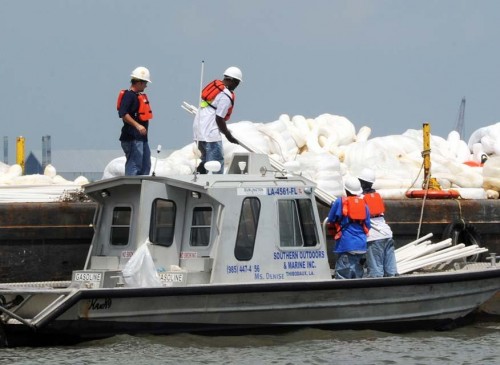
Lafourche council shoots down Company Canal deal
June 8, 2010Thursday, June 10
June 10, 2010As oil continues to spew into the Gulf of Mexico and wash up on Louisiana’s shore, an ironic thing has happened – the same oil that brought prosperity to businesses and residents of the Bayou Area for so many years is now the cause of their potential downfall.
After President Barack Obama’s order to halt work on exploratory wells in the Gulf of Mexico for six months, many local workers in the oil and gas industry are worried about the future of the local economy, as well as the future of their jobs.
“If the moratorium continues, literally thousands of jobs will be lost very quickly,” said Don Briggs, Louisiana Oil and Gas Administration (LOGA) President. “It will devastate the job market in Lafayette as well as in Houma, because a big part of the market there is servicing people in the Gulf of Mexico. Saying it’ll have an impact is an understatement.”
A recent study from the Louisiana Mid-Continent Oil and Gas Association projects between 800 and 1,400 offshore jobs per rig are at risk, averaging to an economic impact between $5 and $10 million in lost wages per month per platform.
Needless to say, Louisiana public officials strongly oppose the moratorium, including Gov. Bobby Jindal.
The governor sent a letter to Obama and U.S. Department of the Interior Secretary Ken Salazar last week citing grave concerns about the administration’s decision to place a moratorium on deepwater drilling.
It was a point he repeated during Obama’s visit Friday to the coastal region.
“During one of the most challenging economic periods in decades, the last thing we need is to enact public policies that will certainly destroy thousands of existing jobs while preventing the creating of thousands more,” Jindal wrote in his letter.
Briggs agrees that the effects to south Louisiana’s job market will be devastating if the moratorium stays in place.
“It’s outrageous for the president to put a moratorium on deepwater exploration. There will be the loss of about 10,000 jobs very quickly,” said Briggs. “The deepwater horizon was an accident. Oil and gas industry has the capability to drill safely in deepwater Gulf of Mexico. The 591 producing wells in deepwater Gulf of Mexico from the bottom of the ocean have never had one single problem. There are thousands of deepwater wells around the world producing.”
South Central Industrial Association (SCIA) Executive Director Jane Arnette agrees many jobs will be lost and fears the pains of the 1980s oil crisis in the Tri-parish area could be about to repeat themselves.
“I am actually hurt that the President of the United States would do such a thing – to destroy a way of life,” said Arnette. “If this moratorium is maintained for any length of time, it will greatly affect the economy.”
But officials say the initial effects that stem from lost wages and lost jobs will greatly affect businesses who don’t work in oil or gas industries as well as those who do.
“Each offshore job supports four on-shore jobs, so in the Tri-parish area, the people on those platforms live in your parishes,” said Chris John, Louisiana Mid-Continent Oil and Gas Association President. “They don’t have work, so they won’t spend money. So the little neighborhood grocery store might close if enough of them live in the area or any number of things might happen.”
And these effects will be felt most directly in areas like the Tri-parishes with a great number of offshore workers.
“It’ll affect your bankers. It’ll affect your schools. It’ll affect your government, because the government won’t be getting the tax base,” said Arnette. “Every aspect of our economy will be affected.”
And if the moratorium lasts for longer than six months, local workers may not be able to get their offshore jobs back.
“If they [extend the moratorium] then all those rigs out there are probably going to pull their anchor and leave and go somewhere else – say west coast of Africa,” said John. “If they do, it’ll be two years before they come back, and therefore there will be a very big slowdown in the deepwater drilling activity in this area.”
John said the next few weeks would be very telling in whether the moratorium will be extended past six months, but Briggs said every day Louisiana is not drilling for oil is another day the state is losing money.
“If the moratorium stays in place, the rigs will move away to another country, and our production will decline,” said Briggs. “We will then turn around and import more crude oil from foreign countries and increase our national debt.”
Workers contracted by BP, and under the direction of the U.S. Coast Guard, moor their vessel at a floating barge and off-load absorbent boom in Port Fourchon. * U.S. Coast Guard photo by Petty Officer 3rd Class ANN MARIE GORDEN









